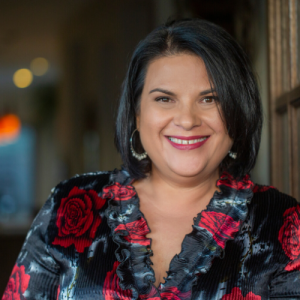Luxury used to be about owning an exclusive product, designer clothes, a house on the beach, or a sports car. Not anymore. Time is the new luxury. Time to be still. Time to rest. Time to think. Time to create.
We’re slowly becoming aware of the collective impact of our excessive consumption and the impact it’s having, not only on the environment but on our wellbeing. Experiencing life and taking time for self is developing a new economy of experiences where immersing oneself in memorable moments is becoming more desirable than buying or owning things.
It Can Be So Simple
Making the most out of your time doesn’t have to be exclusively about extreme experiences or adventurous holidays. It can be as simple as spending time with those you love. Taking time to stop and be present. Time to pay attention to what (or who) is right in front of you.
Universally, people have a deep yearning to slow down. While we can’t stop time altogether, we can change how we experience time.
Here are a few ideas to help you slow down and really experience life.
‘I’m too busy’
How often do you hear yourself say ‘I’m too busy’?
- I don’t have time
- I wish I had more time
- I don’t have time for the things I love to do
- I’m working all the time to pay the bills/rent/mortgage
- I’m running after the kids all the time
- Between my family and my work, I don’t have any time for me
We tend to get so pre-occupied with stuff that’s going on around us that we lose track of time and the most ideal way to spend it.
Around the clock
Modern life is 24/7. We have access to products, services, and facilities around the clock. We want instant gratification. Waiting in a line at the supermarket or at the bank has become a great form of frustration for many people. Not to mention how a slow internet connection can intensify a person’s mood in a heartbeat!
Disconnect to reconnect
With technology making work so accessible, it’s increasingly difficult for people to switch off. Work expectations outside of normal working hours has become a hidden rule. Yet the ability to ‘turn off’ is vital to a person’s ability to function.
Multitasking doesn’t help. It only decreases the quality of your output.
Stress, and a lack of sleep, are widely accepted to have a range of negative impacts on your health, especially when experiencing them long-term. Taking active steps to minimise stress, such as reducing the time we spend on our devices, especially at home, will actually improve your health.
Reducing screen time can help you sleep better and for longer, reduce anxiety, and aid concentration. Putting your phone down altogether for periods of time will help you to recalibrate entirely, both mentally and emotionally.
All of me – practice being present
We’ve all seen it. A group of friends or family out for a meal, heads bowed, engrossed in their devices – not talking and not really spending time together. Sadly, it’s a common occurrence.
Our phones have made us slaves to what’s going on in other people’s worlds – celebrities, media figures, even strangers, that we have forgotten about who is right in front of us. Being fully present with someone and giving them your gift of time, is the most valuable gift you can give.
Being present can also be as easy as stepping outside for some fresh air, taking your shoes off, spreading a picnic rug in the park and gazing skyward for a while. Taking a moment to be fully present within yourself.
Slow living movement gaining pace
By latching onto the idea that the world is fast-paced, and the need to keep up with it, we seem to have lost track of ourselves. Where are we rushing to? If we spend all our time trying to reach our goals and achieving our ambitions, what becomes of the journey?
Movements are popping up all over the planet encouraging people to slow down.
“As an antidote to our tech-obsessed society,” describes the Wall Street Journal, “slow-morning practitioners wake up early to meditate, read, exercise or do nothing at all.
We need to re-learn to bring our energies back to the present – to something small and focused. By slowing down and focusing on where we are and what we are doing at that moment, we give our minds time to relax and balance.
Starting from scratch
The process of slowing down can begin with making things from scratch or doing something in its entirety. It wasn’t that long ago that if you wanted to listen to music, you’d turn on your record player and listen to an album from start to finish. People used to do this, mostly because it was a nice way to spend your time, and there was no real easy way to skip between tracks without getting up out of the chair, walking over to the turntable and lifting the needle.
Think about ways you can spend your time being creative, doing things like painting, mending or making clothes, learning a language, gardening, or finding out how your food is farmed, harvested or grown.
Speaking of food, it’s little wonder people worldwide have embraced the slow food movement. Once upon a time if you wanted some biscuits, you’d take the eggs, flour and sugar, and make your own.
Think about the multitude of prepared meals you can now buy. All you need to do is open the packet, heat and serve. Sounds easy, right? It is, yet it’s the process of cooking itself that causes you to slow down and be present. Cooking also represents connection, with your food sources, your family and friends.
Small decisions, big impact
At the end of your life, what will you reflect on? Will it be the things you bought or the meaningful experiences you had? Or the relationships you had to time to nourish?
Life moves quickly and time flies. By making small changes, every day, we can begin to live more mindfully. Your health, your friends and family – and probably your bank balance – will thank you for it!
How do you ‘stop’ time and just breathe? Tell us in the comments below.




















8:03 am
8:15 am
11:34 pm
9:30 am
4:44 pm
2:31 am
10:19 pm
2:13 pm
-

-
-
mom446844 replied
- 30 Oct 2019 , 3:50 pm
Reply12:24 pm
9:08 pm
-

-
-
mom446844 replied
- 29 Oct 2019 , 12:38 pm
Reply1:25 pm
-

-
-
mom446844 replied
- 29 Oct 2019 , 12:39 pm
Reply12:13 pm
-

-
-
mom446844 replied
- 29 Oct 2019 , 12:48 pm
Reply11:47 am
-

-
-
mom446844 replied
- 29 Oct 2019 , 12:40 pm
Reply10:38 pm
12:23 pm
9:16 am
8:58 am
8:12 am
12:12 am
11:43 pm
- 1
- 2
- 3
- »
Post a commentTo post a review/comment please join us or login so we can allocate your points.